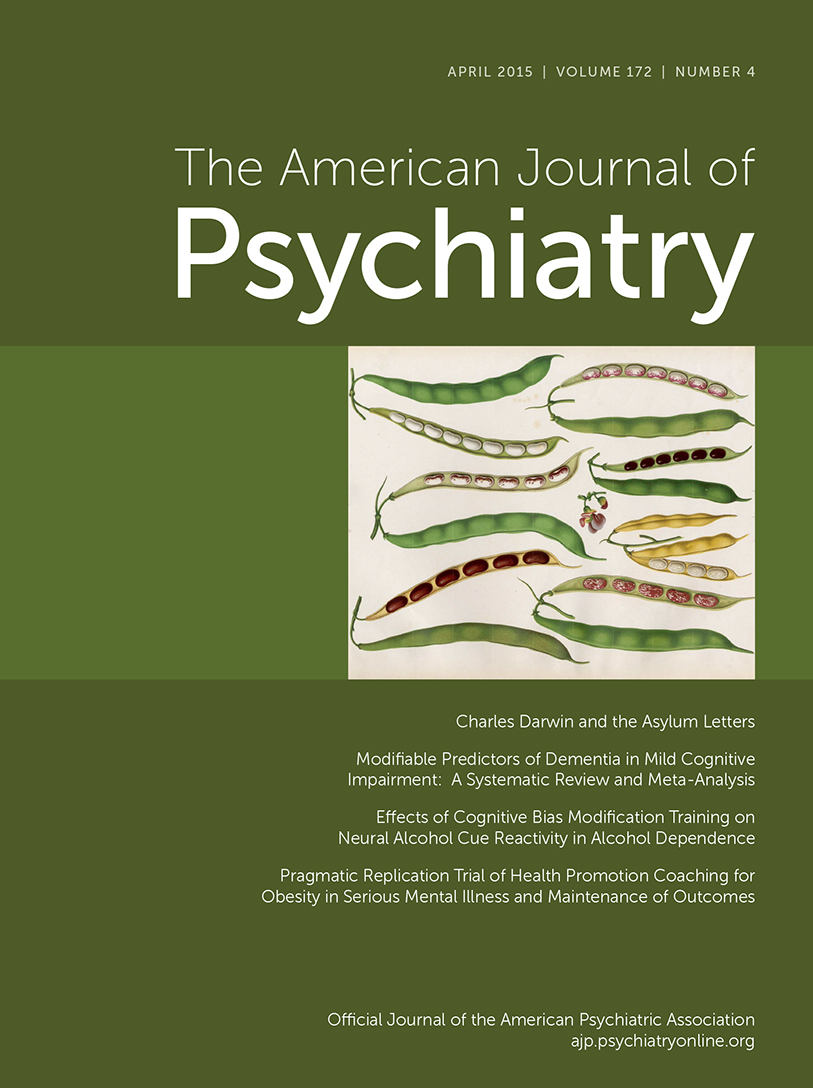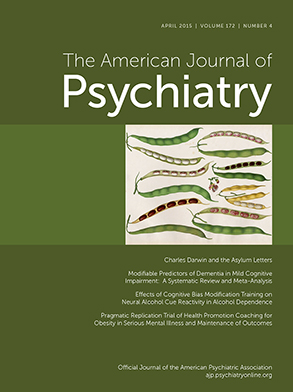T
o the E
ditor: The article by Falk Leichsenring, D.Sc., et al. (
1), published in the October 2014 issue of the
Journal, offers a useful addition to the literature on the treatment of social anxiety disorder; however, we must emphasize that clinical guidance should not be based on one trial. It should utilize systematic reviews of all available evidence. For example, a recent network meta-analysis including 101 trials found individual cognitive-behavioral therapy (CBT) to be superior to no treatment and both pill and psychological placebos (
2). In contrast, psychodynamic therapy was superior to no treatment but not different from either placebo and inferior to CBT (
2).
Regarding the finding by Leichsenring et al. that CBT and psychodynamic therapy showed no difference in outcome in the long-term, we are concerned that there were methodologic limitations that detract from these findings. The authors’ study registration indicates that the primary outcome measure was the absence of a diagnosis of social anxiety disorder determined by the Structured Clinical Interview for DSM-IV Axis I Disorders, as well as the Liebowitz Social Anxiety Scale. Yet, the authors reported outcomes based on a remission defined by only change in score on the Liebowitz Social Anxiety Scale. We have additional concerns regarding the loss of participants in the long-term follow-up of 81% and 67% in the psychodynamic therapy and CBT groups, respectively. Finally, the use of multiple imputations in an “intention-to-treat” analysis assumes that data are missing at random, but the missing data rate during follow-up was significantly higher for psychodynamic therapy than CBT.
Acknowledgments
Dr. Hofmann has received financial support from Otsuka America Pharmaceutical, grant support from the Department of the Army, NIH/National Center for Complementary and Integrative Health (grant R01AT007257), and NIH/NIMH (grants R01MH099021, R34MH099311, R34MH086668, R21MH102646, R21MH101567, and K23MH100259), royalties from Springer and the American Psychological Association, and scientific advisory board fees from Palo Alto Health Science. Dr. Barlow has received royalties from Cengage Learning, Guilford Publications, Pearson Publishing, and Oxford University Press; he has received grant support from NIMH; and he has received consulting and honoraria fees from the Agency for Healthcare Research and Quality, the Chinese University of Hong Kong, the Department of Defense/Project VALOR, the Foundation for Informed Medical Decision Making, the Mayo Clinic, the New Zealand Psychological Association, and the Universidad Católica de Santa Maria. Dr. Clark has received grant support from Wellcome Trust (grant 069777). Dr. Hollon has received grant research support from NIH/NIMH (grant R01MH60713). Dr. Mayo-Wilson has received financial support from the Economic and Social Research Council (United Kingdom), the National Institute for Health and Care Excellence (United Kingdom), and the Patient-Centered Outcomes Research Institute.

